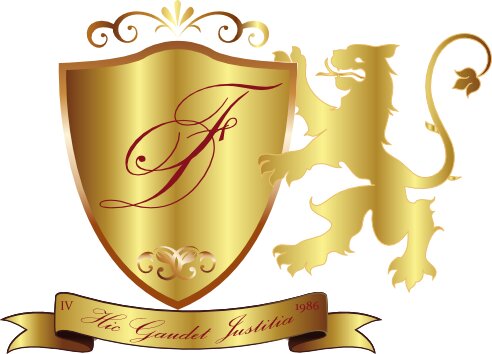Best Creditor Lawyers in Turin
Share your needs with us, get contacted by law firms.
Free. Takes 2 min.
List of the best lawyers in Turin, Italy
About Creditor Law in Turin, Italy
Creditor law in Turin, Italy, is governed by both national and local regulations that protect creditors' rights while balancing the interests of debtors. Turin, as part of the Piedmont region, operates under the Italian Civil Code and other relevant financial statutes that detail how creditors can collect debts, enforce claims, and deal with insolvency situations. Whether the creditor is a private individual, a business, or a financial institution, Italy’s legal system offers a structured approach to ensuring obligations are honored and disputes are resolved efficiently.
Why You May Need a Lawyer
Seeking legal advice or representation in the field of creditor law may be necessary in several scenarios:
- Recovering unpaid debts from individuals or companies
- Navigating the enforcement of secured or unsecured claims
- Dealing with insolvent debtors or participating in bankruptcy proceedings
- Contesting claims made by debtors or other creditors
- Drafting and negotiating clear lending contracts
- Managing cross-border debt recovery if foreign parties are involved
- Understanding the rights and obligations related to guarantees and securities
- Protecting one's interests during out-of-court settlements or mediation
Local Laws Overview
Creditor law in Turin is largely based on Italy’s Civil Code, which governs obligations, contracts, and enforcement of credits. Key local aspects include:
- Recovery Procedures: Creditors typically initiate recovery through formal demand letters, progressing to judicial orders for payment if unresolved.
- Enforcement of Judgments: Once a court recognizes the creditor’s claim, local judicial officers can seize and auction debtor assets to satisfy debts.
- Bankruptcy Laws: In cases of debtor insolvency, creditors must file claims through the court-appointed bankruptcy administrator. Creditors’ priority depends on whether they hold secured, privileged, or unsecured status.
- Statute of Limitations: Most credit claims have a statutory limitation period, usually 10 years for contractual debts, but shorter in some cases.
- Out-of-Court Settlements: Turin courts often encourage alternative dispute resolution, which can provide quicker and less costly solutions.
- Interest Regulations: Laws limit usury and dictate allowable interest rates on unpaid debts.
- Consumer Protections: Special rules apply when the debtor is a consumer, protecting against unfair contractual terms or excessive collection activities.
Frequently Asked Questions
What is the process to recover a debt in Turin?
The typical process starts with a formal written demand to the debtor. If unpaid, you can request a court-issued order of payment, leading to enforcement actions-such as asset seizure-if needed.
Do I need a lawyer to collect a debt?
While not always mandatory, having a lawyer is highly recommended for legal expertise, preparing necessary documents, and representing you in court or complex negotiations.
How long do I have to claim a debt?
Most contractual debt claims have a 10-year limitation period in Italy. Some debts (like those arising from invoices) may have shorter terms. Legal advice helps determine the right period for your case.
Can a creditor seize a debtor’s assets?
Yes, with a court order. The enforcement officer (ufficiale giudiziario) can seize assets such as bank accounts, vehicles, or real estate to satisfy the debt.
What if the debtor is bankrupt?
You must lodge your claim in the bankruptcy proceedings to the court-appointed curator. The claim’s satisfaction depends on available assets and your credit’s priority ranking.
Are there special rules for business debts?
Yes. Commercial contracts may involve different terms, and some expedited procedures exist for business-to-business claims. Legal counsel can clarify specific steps.
Can interest be charged on overdue debts?
Yes, subject to legal limits. Usury laws cap the maximum allowable rates. The contract should specify interest; otherwise, statutory rates apply.
What should I do if I receive a demand letter?
Consult a lawyer immediately. Ignoring a demand letter can lead to legal action and asset seizure. A lawyer can help you respond appropriately or negotiate a settlement.
Is mediation available for creditor disputes?
Yes. Turin courts often promote mediation or settlement before litigation, especially in commercial matters. This can save time and costs.
What documents are needed to prove my claim?
Key documents include original contracts, invoices, demand letters, payment records, and any correspondence with the debtor. A lawyer can help organize and present your evidence.
Additional Resources
If you need guidance or support, consider reaching out to the following:
- Ordine degli Avvocati di Torino: The official Turin Bar Association, which provides lists of qualified lawyers.
- Camera di Commercio di Torino: The Turin Chamber of Commerce, supporting business-related claim matters.
- Tribunale di Torino: Turin’s main civil court, for initiating or following debt recovery proceedings.
- Local Consumer Associations: Useful if the debtor or creditor is a consumer, offering free or low-cost advisory services.
- Cassa di Risparmio and local banks: For guidance on judicial proceedings involving bank claims.
Next Steps
If you believe you need legal help with a creditor issue in Turin, consider the following steps:
- Gather and organize all related documentation (contracts, invoices, correspondence).
- Contact a local lawyer who specializes in creditor law through the Ordine degli Avvocati di Torino or a trusted referral.
- Schedule a consultation to outline your case and discuss your options.
- Follow your lawyer’s advice regarding negotiation, mediation, or litigation as needed.
- Stay informed and keep records of all further correspondence and legal steps.
Lawzana helps you find the best lawyers and law firms in Turin through a curated and pre-screened list of qualified legal professionals. Our platform offers rankings and detailed profiles of attorneys and law firms, allowing you to compare based on practice areas, including Creditor, experience, and client feedback.
Each profile includes a description of the firm's areas of practice, client reviews, team members and partners, year of establishment, spoken languages, office locations, contact information, social media presence, and any published articles or resources. Most firms on our platform speak English and are experienced in both local and international legal matters.
Get a quote from top-rated law firms in Turin, Italy — quickly, securely, and without unnecessary hassle.
Disclaimer:
The information provided on this page is for general informational purposes only and does not constitute legal advice. While we strive to ensure the accuracy and relevance of the content, legal information may change over time, and interpretations of the law can vary. You should always consult with a qualified legal professional for advice specific to your situation.
We disclaim all liability for actions taken or not taken based on the content of this page. If you believe any information is incorrect or outdated, please contact us, and we will review and update it where appropriate.











